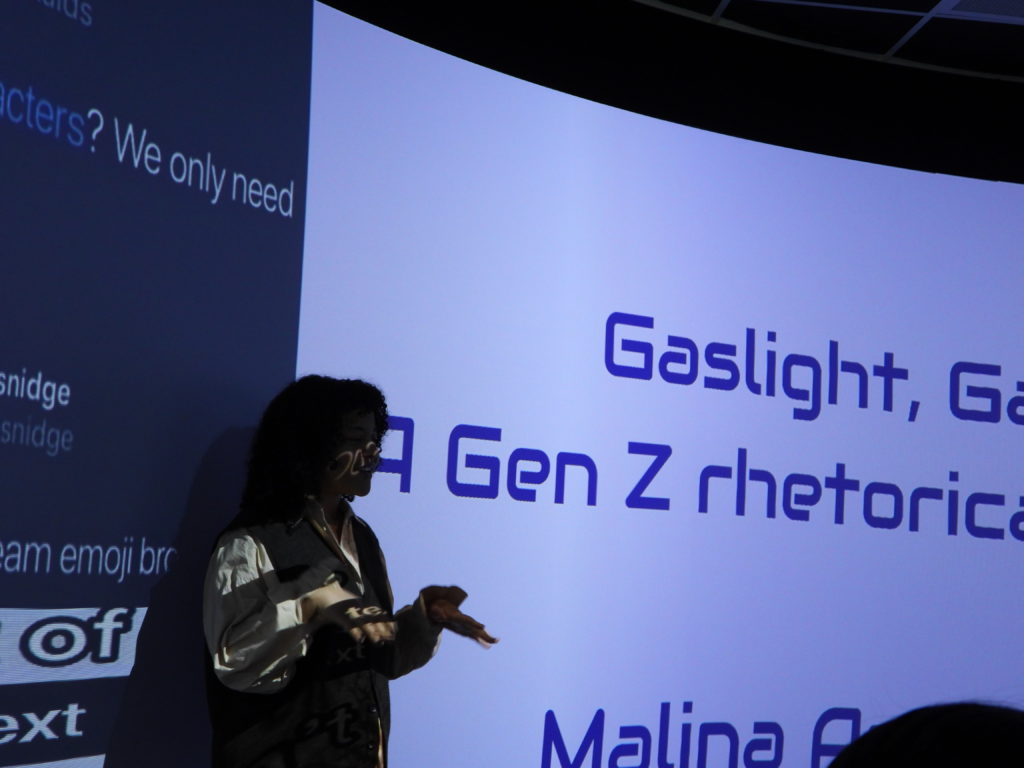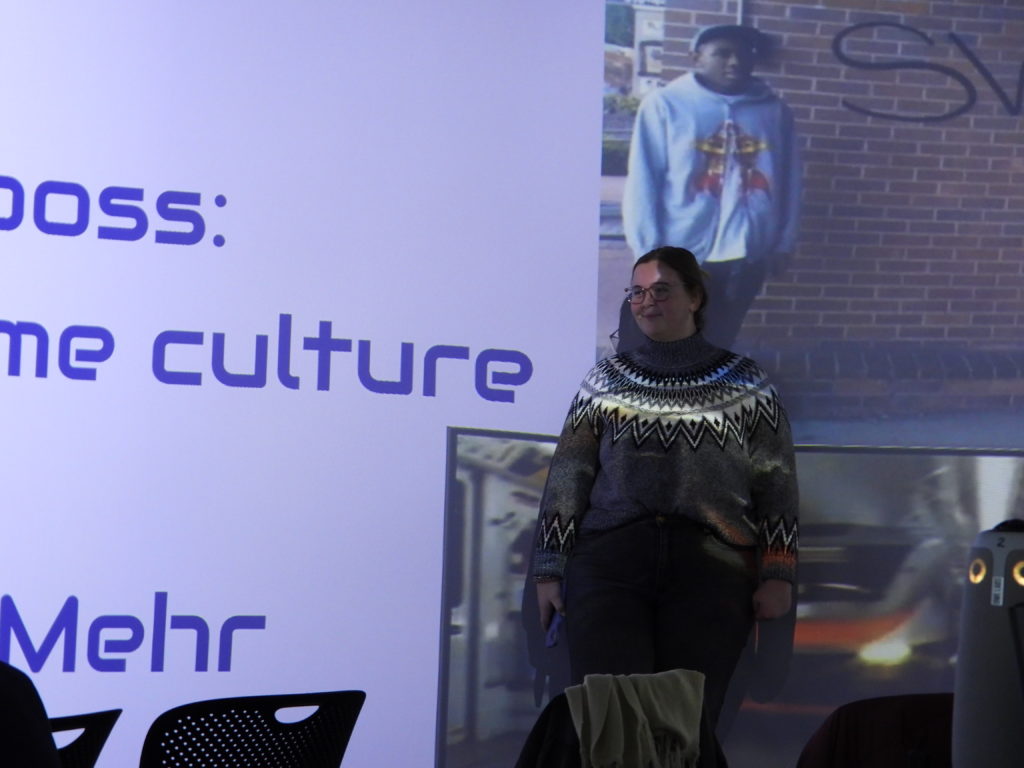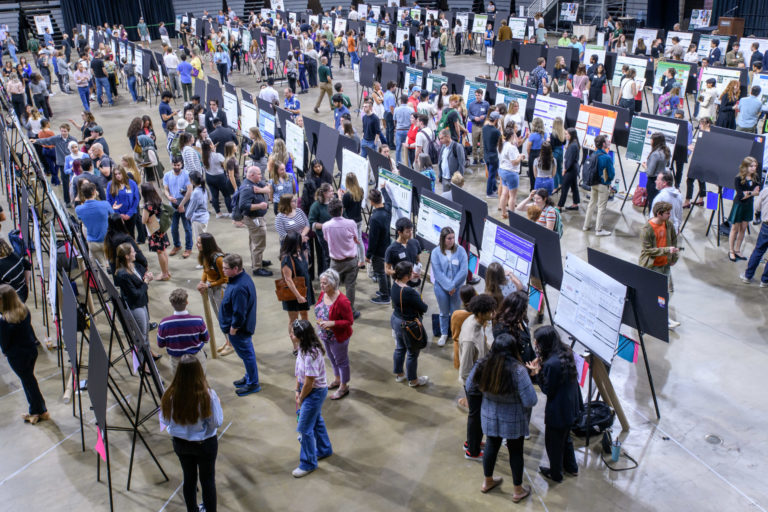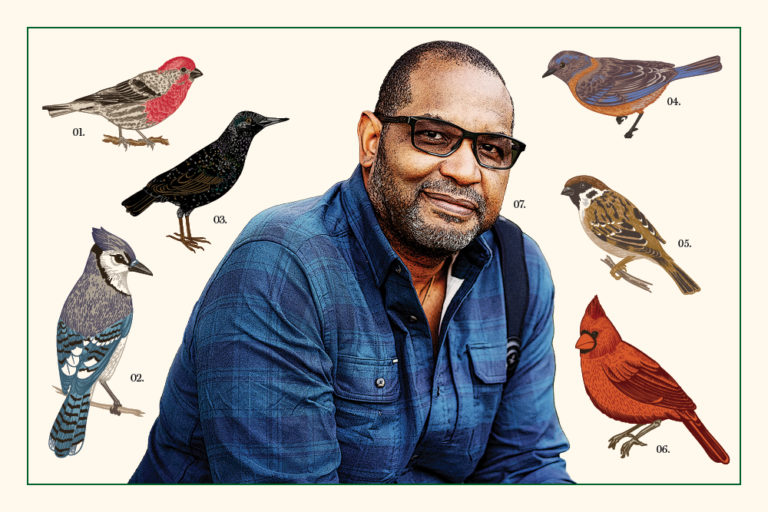On Friday, March 22nd, students and faculty across the department gathered for the Spring 2024 Rhetoric & Writing (RW) “Ignite” Talks in the Digital Scholarship 360 Room. The event was co-sponsored by the Writing, Information, and Digital Experience (WIDE) Research Lab and Writing, Rhetoric & Praxis (WRAP), the RW graduate student group.
The RW Ignite Talks provided a supportive space for RW graduate students to share ideas, ignite new ones, and receive feedback from peers and graduate faculty in the Department of Writing, Rhetoric, and Cultures (WRAC). These were the first of what WRAC envisions to be a recurring series of talks every academic year.
The following students spoke about their current work and aspirations, reflecting a range of scholarly interests in rhetoric and beyond:
1. “Gaslight, Gatekeep, Girlboss: A Gen Z Rhetorical Lens on Meme Culture.”
MA students Malina Anderson & Rylee Mehr shared their rhetorical takes on meme culture from Gen-Z perspectives.


2. “COVID-Era Creativity: Making Data Accessible Through Public Art.”
Ben Lash, an MA student from the Arts, Cultural Management & Museum Studies Department, worked on this project with the WIDE Research Center and WRAC Professor Dr. Nancy DeJoy. Lash and his collaborators created an accessible experience for visitors of the “Creativity in the Time of COVID” exhibition, facilitated by immersive technologies.

3. “Figma, Stark Edition: Creating Accessible Wireframes.”
MA student Alison Hagen explored the potential of the prototyping application Figma and its “Stark” toolkit – a suite of accessibility tools – to create accessible wireframes during website and app design.

4. “Accessibility Overlays: A Band-Aid on a Broken Web” and “Exploring Potentials of ChatGPT in Technical Writing Classes.”
Drawing from her teaching experience and doctoral research, PhD student Imari Cheyne Tetu offered insights on accessibility and best practices for using ChatGPT in undergraduate courses on technical writing.

5. “Wearing Wellness: Conflicting Ethics of a DIY Approach to Health & Wellness Wearables.”
MA student Paige Brady considered the rhetorical and ethical complexities of the Do-It-Yourself Artificial Pancreas System(s) (DIYAPS) Movement. She also explored the implications of marketing continuous Glucose Monitoring (CGM) services to the general public – not just people living with diabetes – as a means of “wellness optimization.”

6. “WRAC Communications: Establishing Departmental Identities.”
MA students Alison Hagen, Sophia Maggio, and Patrick Bertone-Haywood presented their analysis and ongoing redesign of the Research portion of the WRAC website.
7. “Reading on the Go: On Kinetic 3D Text Consumption’s Potential.”
PhD student Narantsogt (Natso) Baatarkhuu shared his vision for delivering textual information in 3-D via virtual reality and other technologies, with the goal of making reading more active, healthier, and accessible for readers with a variety of needs and learning objectives.

These students presented their research in a range of stages. Many of their projects will evolve into academic papers, presentations, publications, or dissertations.
To learn more about their work and other research happening throughout the WRAC Department, please visit the WRAC Research page and contact Dr. Liza Potts for more information about student-led research groups and opportunities.


